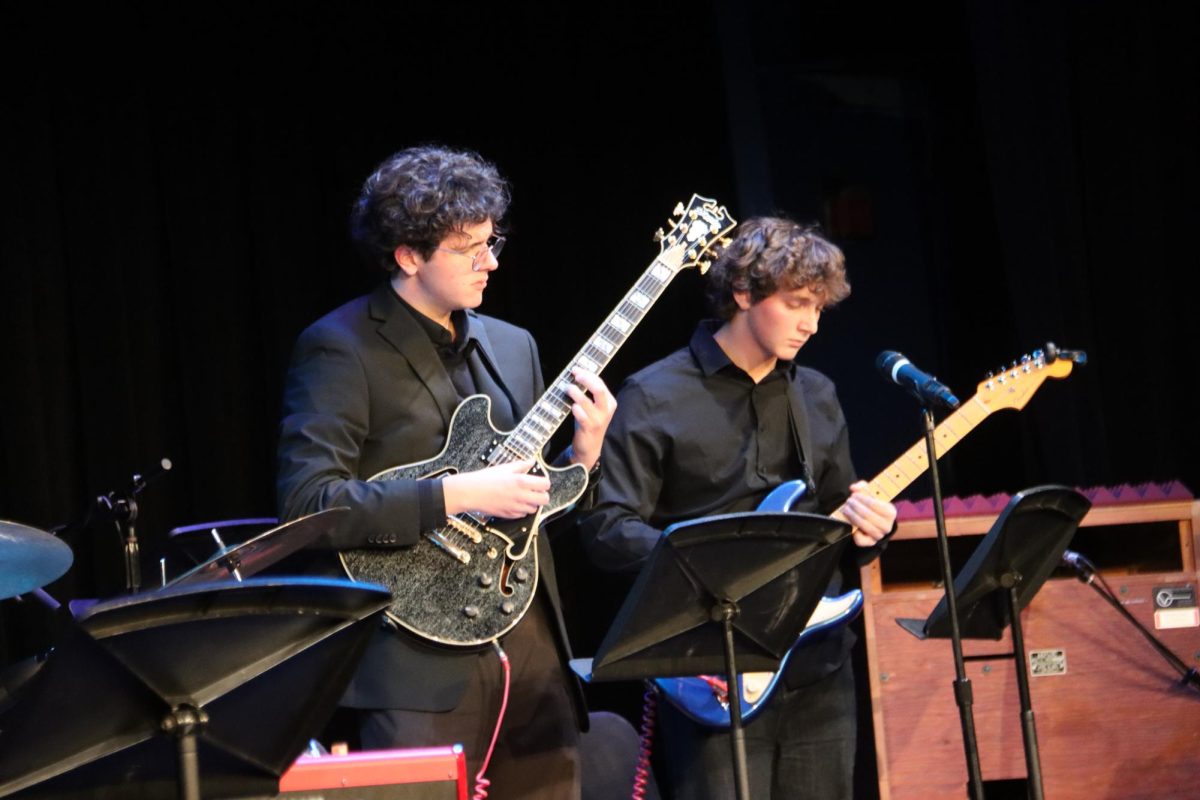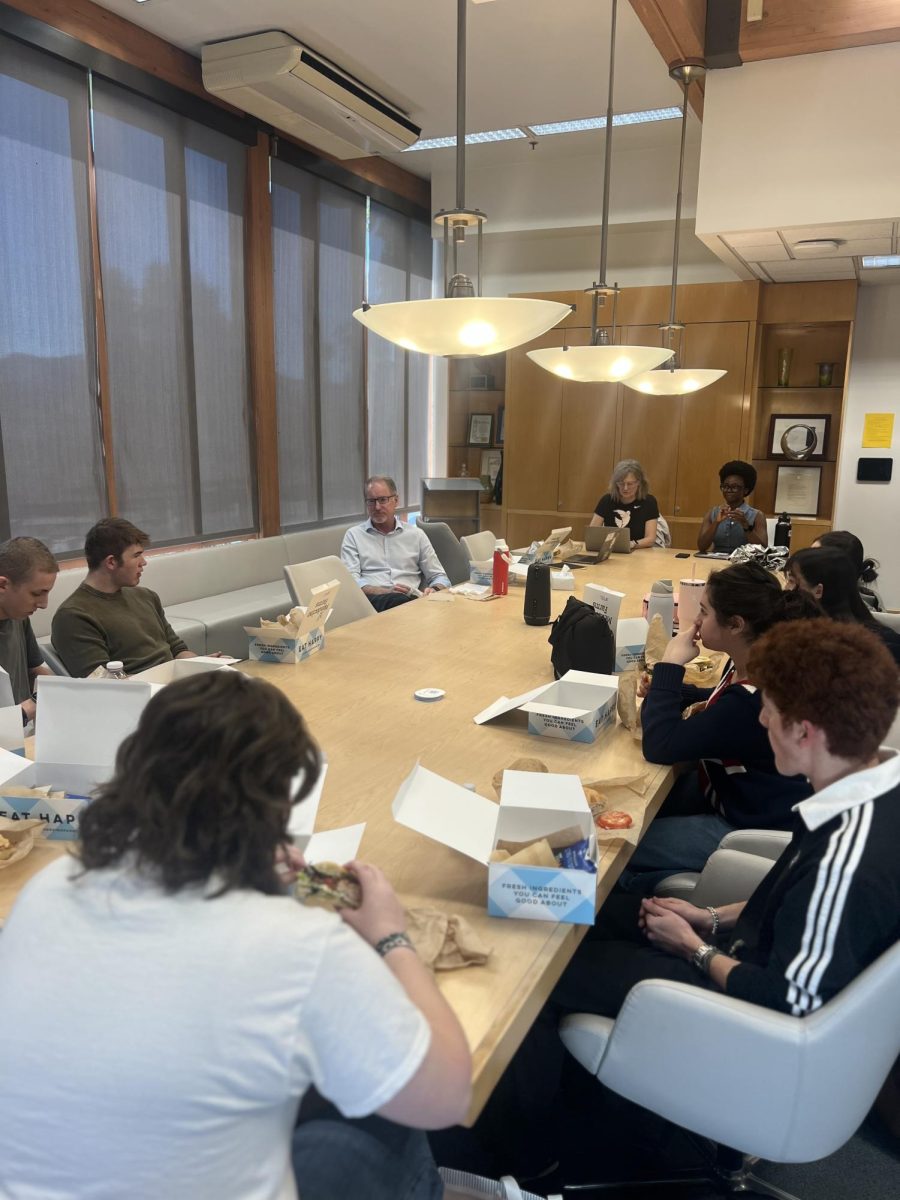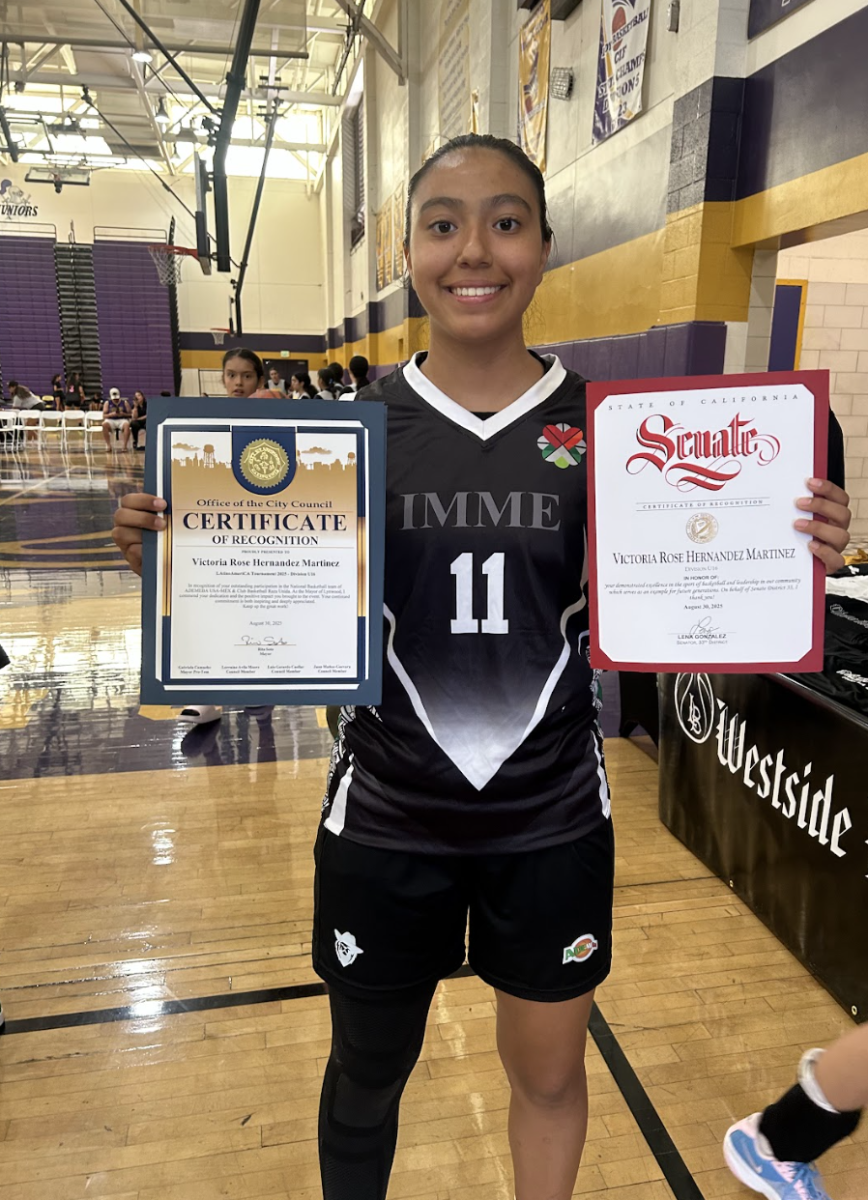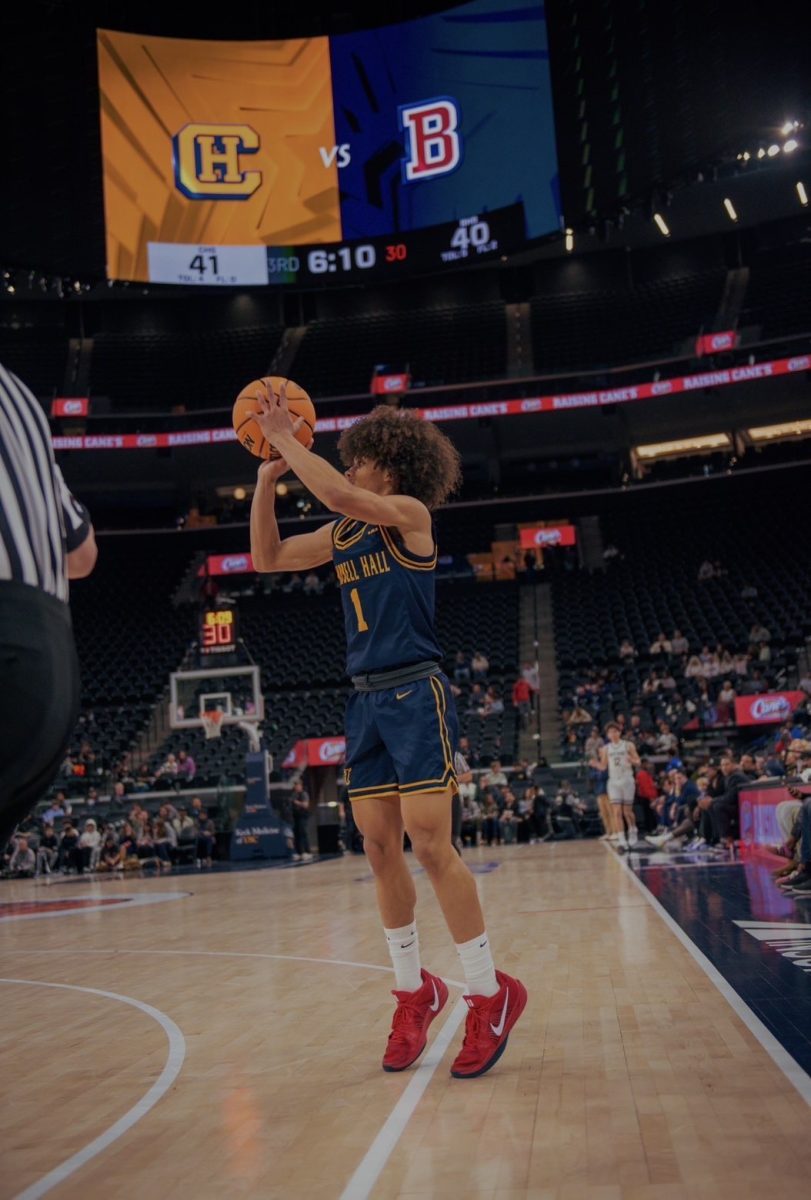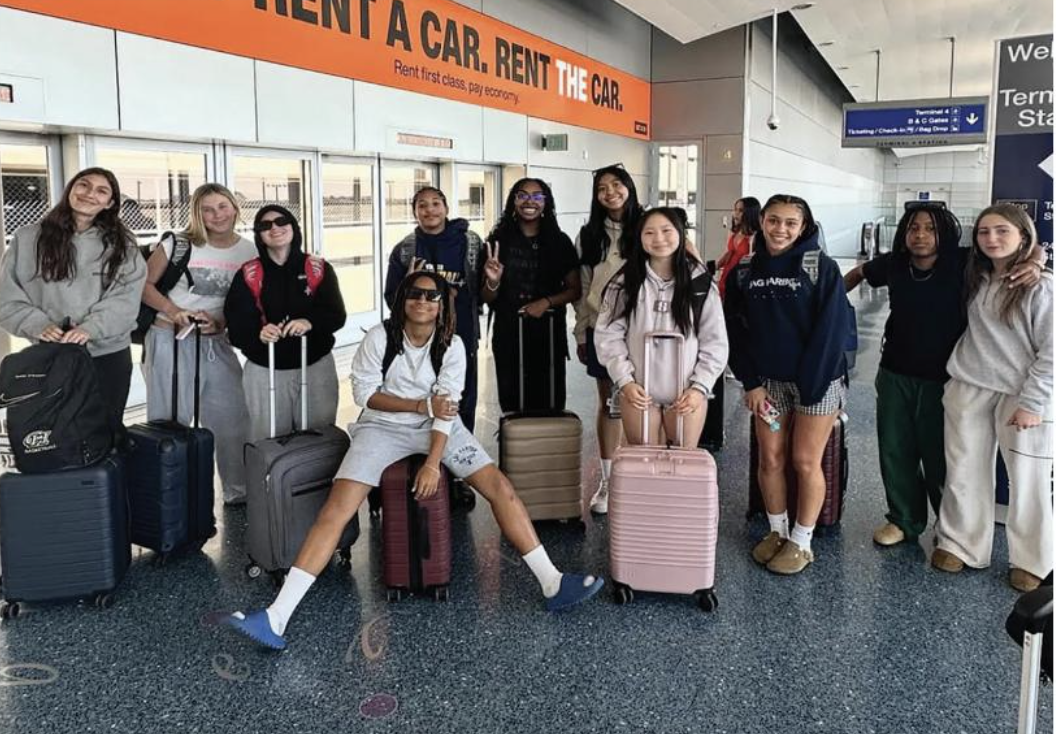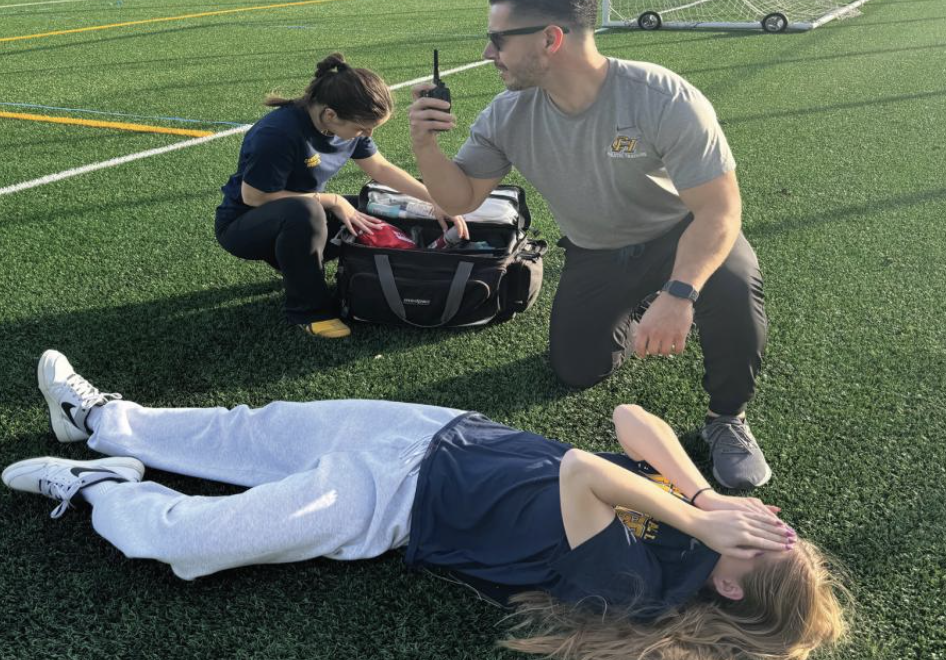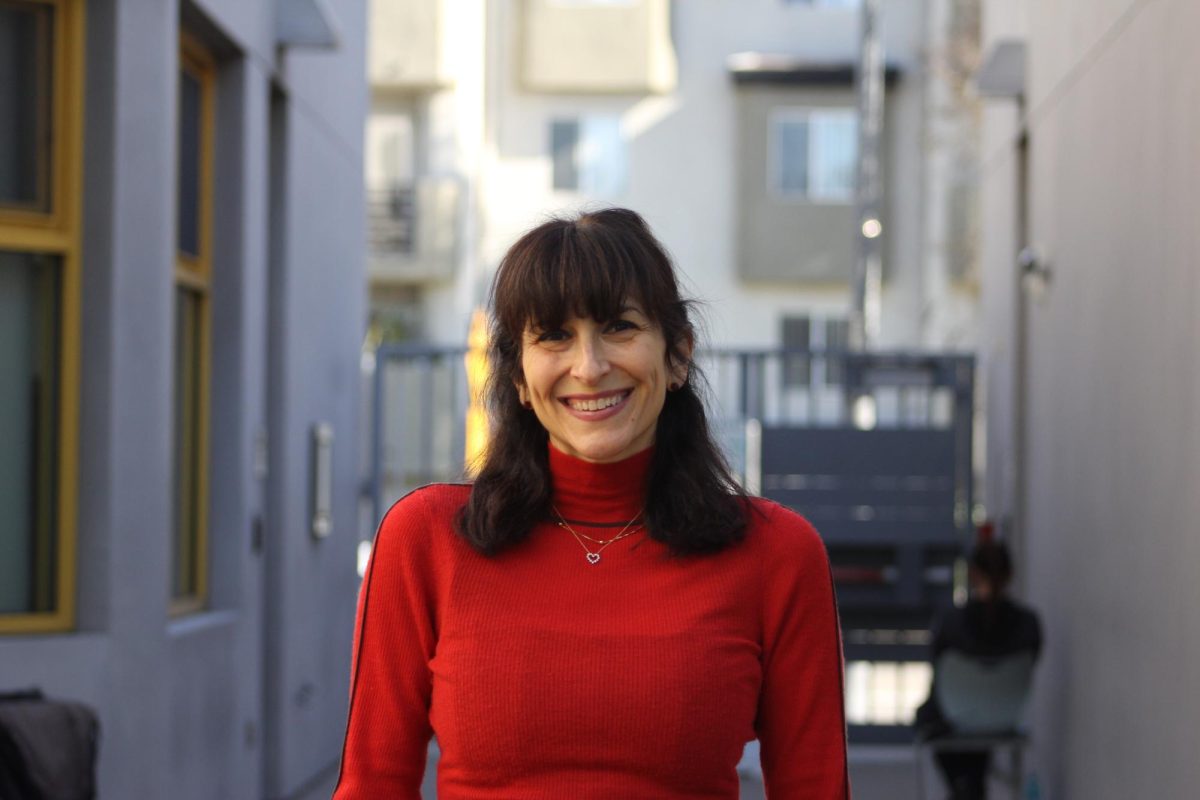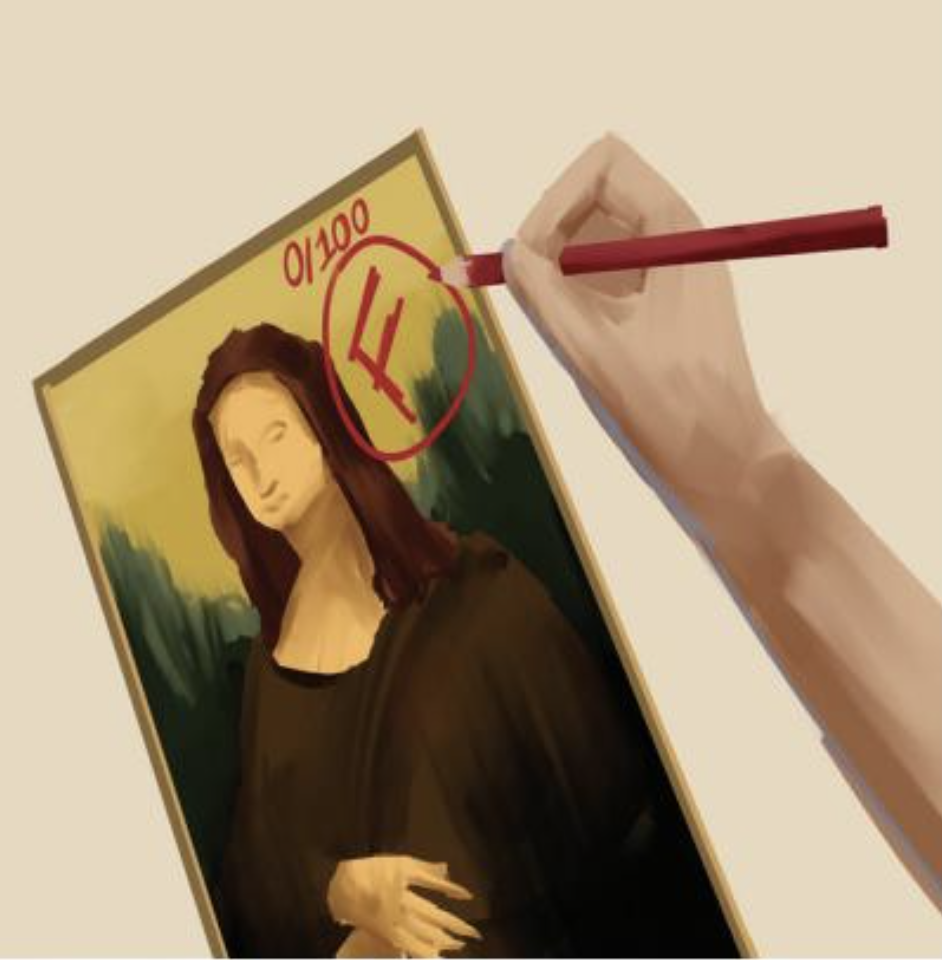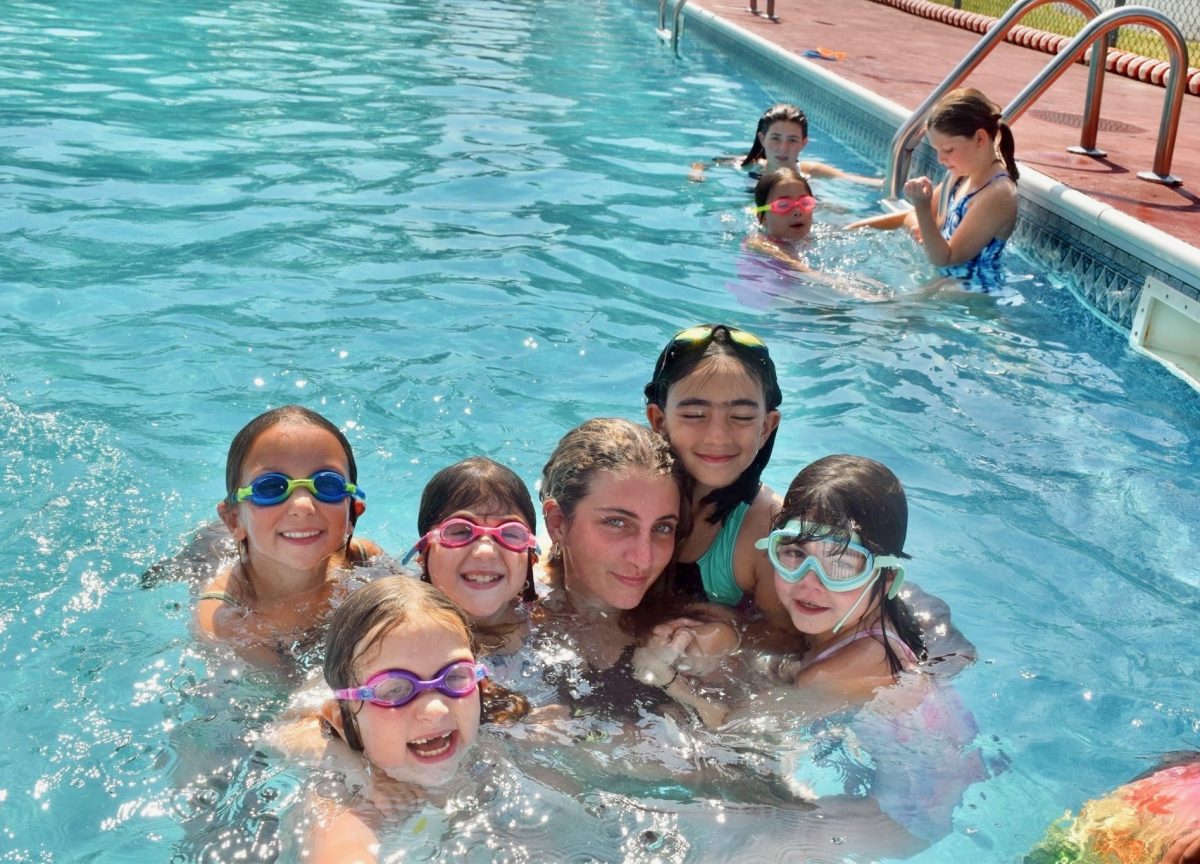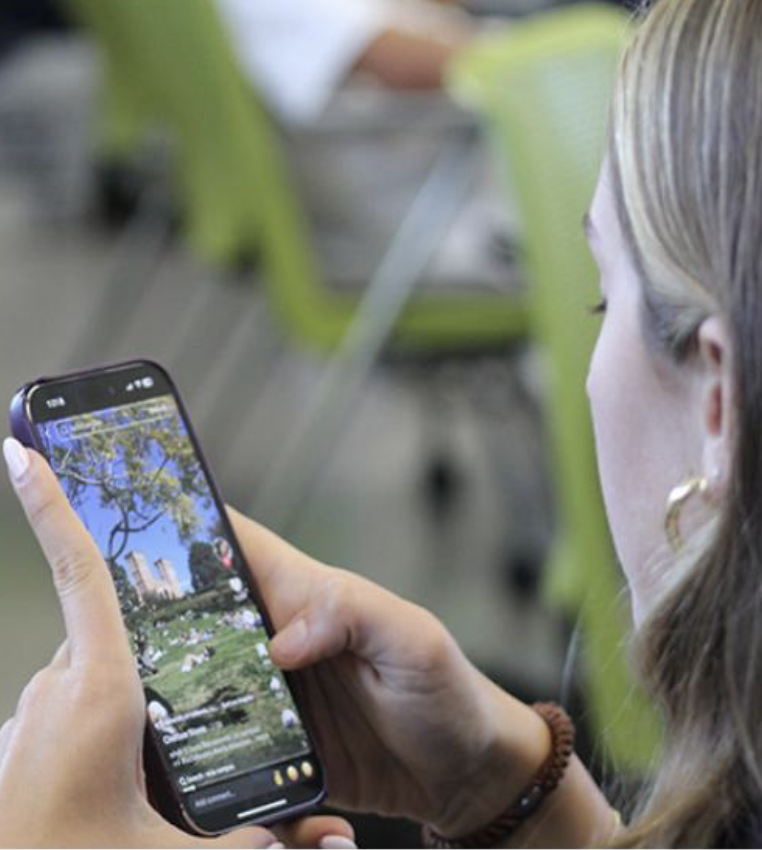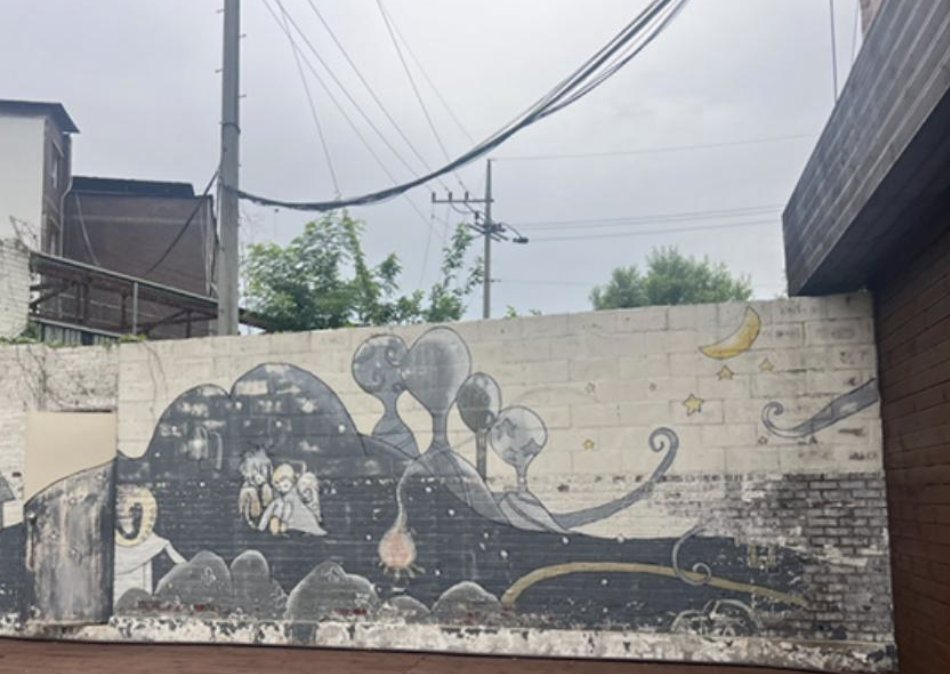Josh N. ‘26 gained an appreciation for conversing with adolescents across the globe after spending two weeks living in France with an exchange student attending his high school classes, indulging in French traditions and developing his language skills. Six months after his journey to France, Josh was pleasantly surprised to hear that he and his classmates in the French IV Honors class would have another opportunity to communicate with native French speakers, as his class would be included in a new pen pal program with students from Guinea.
Over the summer, Chaplain Joseph Courtney was in contact with Troy Elder, leader of the Interfaith Refugee & Immigration Service (IRIS) to create a connection with an Anglican school in Guinea, Africa. With French as Guinea’s main language, Courtney reached out to middle and high school French teacher Landry Tagliere to start a program where students from Campbell Hall could speak with students overseas through WhatsApp.
Josh’s excitement to speak with his pen pal was delayed for a bit, as it was difficult for his correspondent to access the internet. According to the United States Peace Corps, the infrastructure needed to operate the internet in Guinea is very limited, with its connection operating quite slowly. Some can access mobile internet from their homes using specific service providers, but this was not the case for Josh.
“When I first texted my pen pal, he didn’t respond to me for two or three days,” Josh said. “I wondered why he wasn’t responding and if he was ignoring me. That moment was a realization that not everybody in the world has as much accessibility to Wi-Fi as we do. It’s also super different talking to him because we have like different customs and traditions. ”
Like Josh, Shylah O. ‘26 noticed some differences in the way her pen pal communicated versus how she normally does with her friends and peers. While Shylah feels that the pen pal program was a good gateway to help her utilize and develop her French skills, she wishes she had the tools to communicate with her assigned partner more casually.
“Writing to him in French is definitely not what I’m used to, and it was probably the same way for [my pen pal] writing to me in English,” Shylah said. “A lot of [the language] was very professional, which is what we probably both were being taught in our language classes, which made me realize that the French we’re learning in school is not necessarily fit for conversations with people who speak French. So if I want to use my French in my life in a more relaxed way, I need to do some more learning.”
Tagliere operated as a pen pal with the adolescents’ teacher in Guinea. While she noticed some difficulties in communication regarding different social norms in their respective countries, such as a lack of comprehension and improper use of some English words, she appreciates the opportunity she has had to learn about a different culture along with her students. In the future, Tagliere believes programs like this one should be expanded to a larger portion of the student body.
“In my interactions with the teacher, I feel like I’m learning about his life as a Muslim teacher at an Anglican school,” Tagliere said. “That’s been interesting for me. I’d like to feel confident enough about [the program] to be able to expand it because right now it’s such a small portion of the students who study French. But I think it was a wise decision to start small. In the future, I’d love to open up the opportunity more broadly.”


